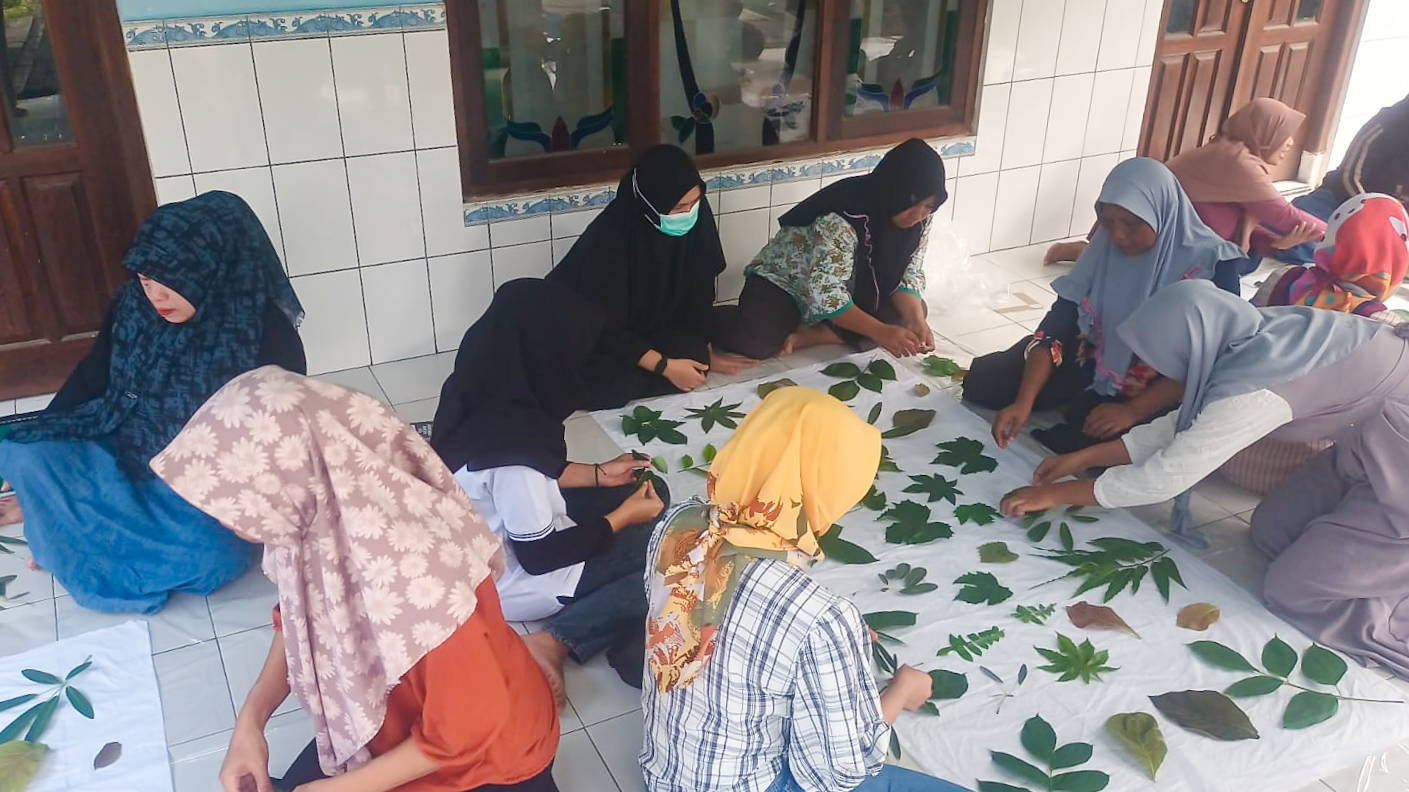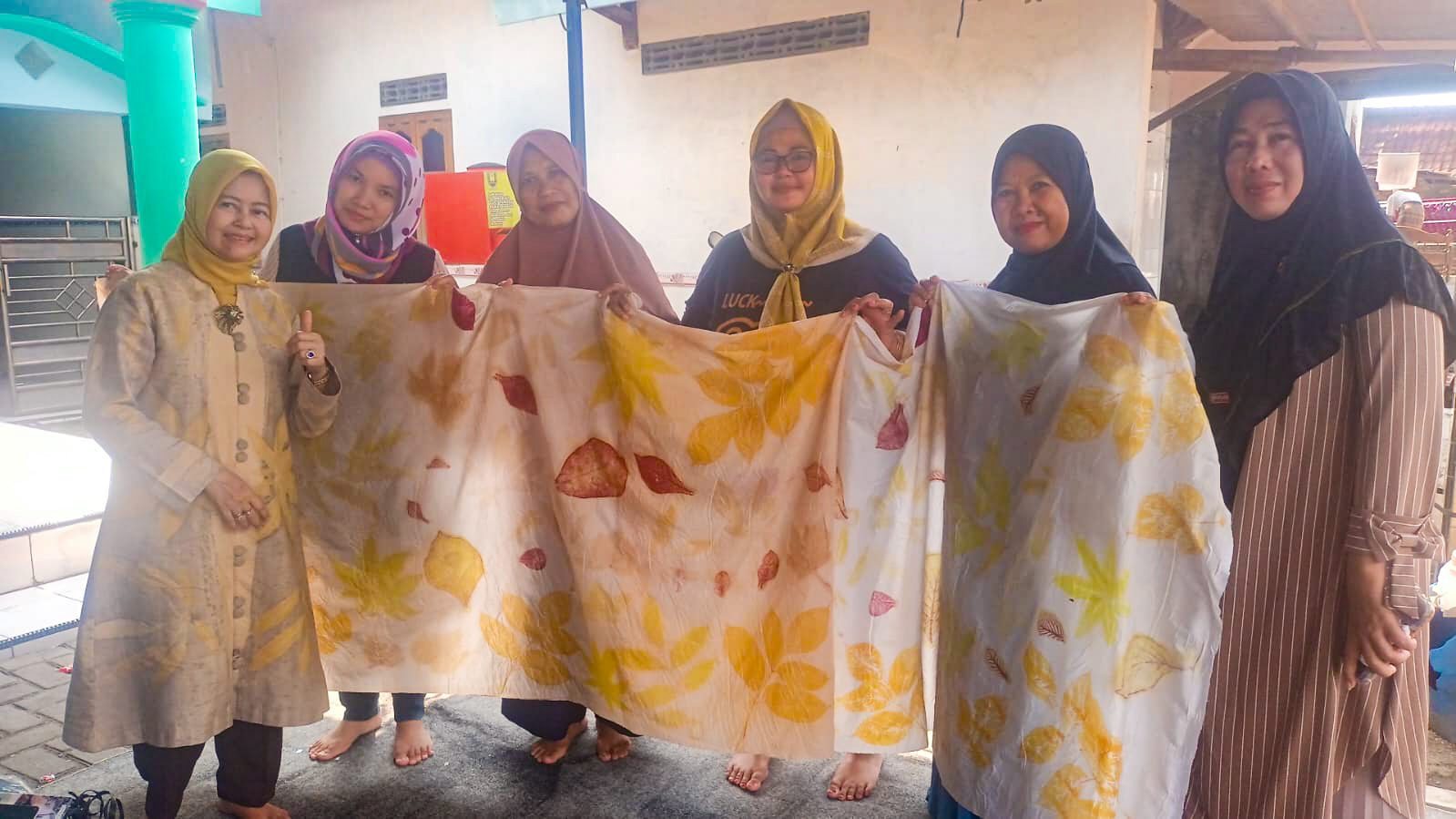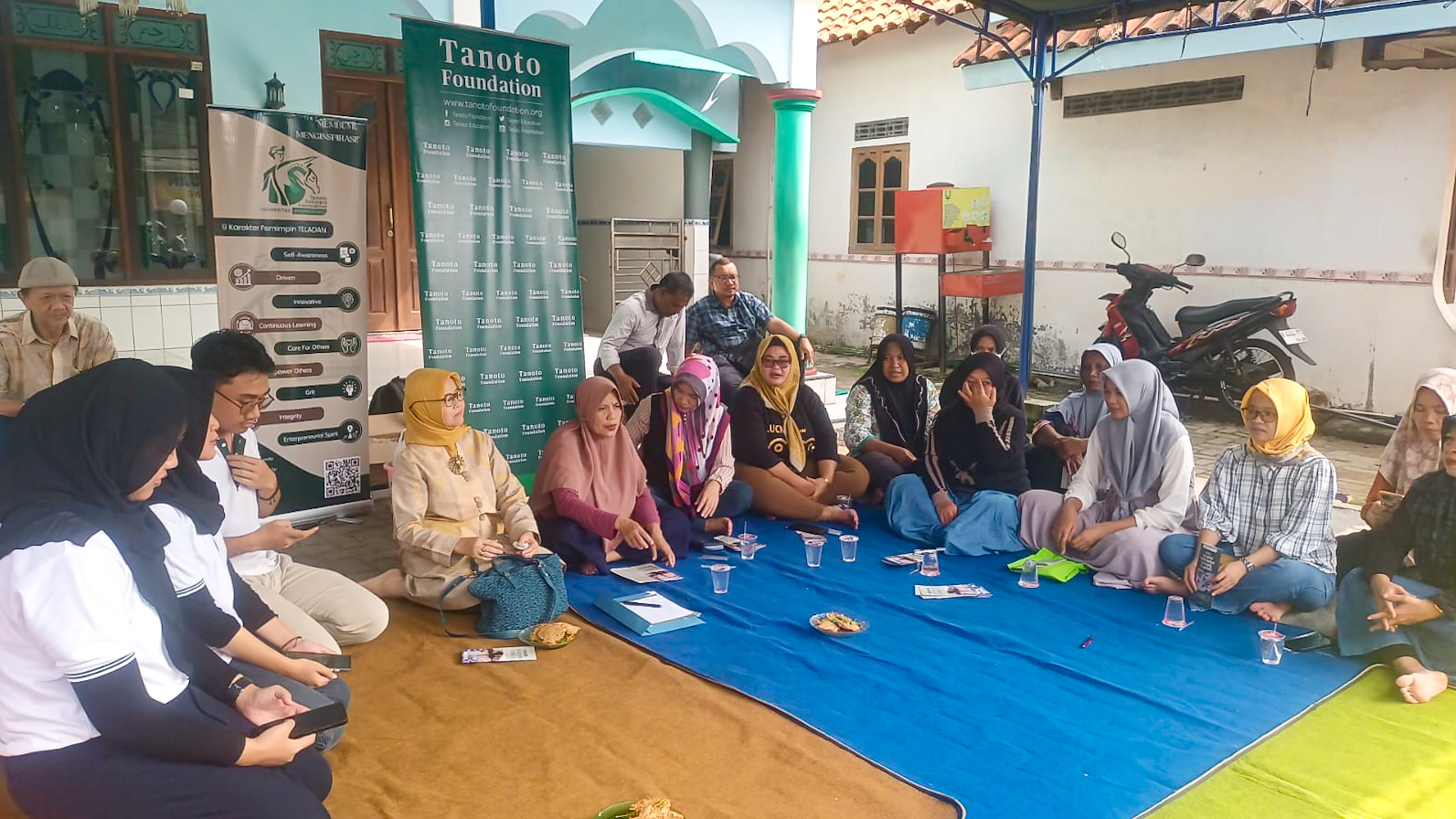The lecturer team of the Agribusiness Study Program at the Faculty of Animal and Agricultural Sciences, Universitas Diponegoro (UNDIP), held a mangrove-based ecoprint workshop on Sunday, June 9, 2024, in Tapak Sub-Village, Semarang City. Prof. Dr. Ir. Titik Ekowati, the team leader, explained that this workshop was part of the Tanoto Scholars Association (TSA) program at Universitas Diponegoro, which organized the Circular EcoBatik Project for Pemberdayaan dan Kesejahteraan Keluarga / PKK Group (Family Empowerment and Welfare) in Tapak Sub-Village, Tugurejo Village, Semarang City.
Masi’in, the Head of RW 4 in Tugurejo Village, expressed that the potential of mangroves had not been optimally utilized. “We hope UNDIP’s presence will inspire the community to process the local potential in Tapak Sub-Village, positively impacting the residents’ economy,” said Masi’in.
Fadhil Hadrian Azzami, the head of the Circular EcoBatik Project, explained that Tapak Sub-Village has mangrove potential that can be utilized to produce eco-friendly ecoprint batik. Dr. Ir. Edy Prasetyo, M.S., a team member, elaborated that the ecoprint workshop focused on using natural colors from mangroves on cotton fabrics with natural materials. “All leaves can be used, especially those with high tannin content, such as leaves of castor, teak, cosmos, and African wood,” said Edy.
In addition to leaves, natural colors can also be obtained from flowers, such as hibiscus, cosmos, frangipani, and hibiscus tiliaceus.
The workshop continued with hands-on eco printmaking, directly guided by Migie Handayani, S.Pt., M.Si., and Hery Setiyawan, S.Pt., M.Si. The equipment used included basins, stoves, steamers, plastic, raffia strings, and hoses for rolling. The steps included soaking the main fabric and blanket fabric in a mordant solution (made from mangroves) to ensure better adhesion of leaf/flower colors to the fabric, followed by leaf/flower printing. After air drying, the fabric was laid flat, leaves or flowers were arranged artistically on the main fabric, and then covered with the blanket fabric.
Next, the fabric was rolled using plastic and a hose, tied neatly, and steamed for approximately 2 hours. The final stage involved cleaning off all leaves and flowers, drying the fabric for four days, and then washing it with fabric softener.
The satisfaction and pride were evident on the faces of the women participants as they revealed their creations. “The fabric turned out beautifully, with stunning patterns and bright colors. It would look great as clothing,” said Masi’in on behalf of the workshop participants.
The workshop was closed by Dr. Ir. Mukson, M.S., a member of the service team, who expressed his readiness to continue supporting the activity. The participants stated their intention to produce more ecoprints to enhance the products of the existing small businesses (MSMEs) in Tapak Sub-Village, Tugurejo Village, Semarang City. (Agribusiness Team FPP, ed. Ut-PR)












